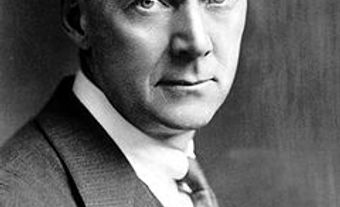In Search of Myself, by Frederick Philip Grove (1946; repr 1974), in part a sequel to Grove's A Search for America (1927), was ostensibly autobiographical, but the self Grove sought was a complicated one. As a cultivated European immigrant, Grove looked back on his life and attempted to explain and justify his failure to realize his youthful promise and attain his early dreams. The book begins with an account of his affluent childhood and reckless youth among the artistic and literary members of European society. This golden past is sharply contrasted with Grove's adventures as a menial itinerant worker in the US, and finally with his poverty-stricken, isolated life as an immigrant teacher, lecturer, writer and part-time farmer in the uncongenial Canadian wilderness.
The book won the Governor General's Award for nonfiction in 1946, but the presence of puzzling inconsistencies and omissions eventually led Canadian scholar D.O. Spettigue to investigate Grove's self-revelations. Spettigue's findings - that Grove had fabricated and indeed aggrandized much of his youthful past - are published in FPG: The European Years (1973).
Regardless of Grove's curious intermingling of fact and fallacy, his stilted prose style and his slightly bitter tone, the book nonetheless sheds valuable light on his own efforts as a creative writer, and provides an insightful analysis into the singular difficulties which plagued the artist in a pioneering Canadian community.

 Share on Facebook
Share on Facebook Share on X
Share on X Share by Email
Share by Email Share on Google Classroom
Share on Google Classroom

